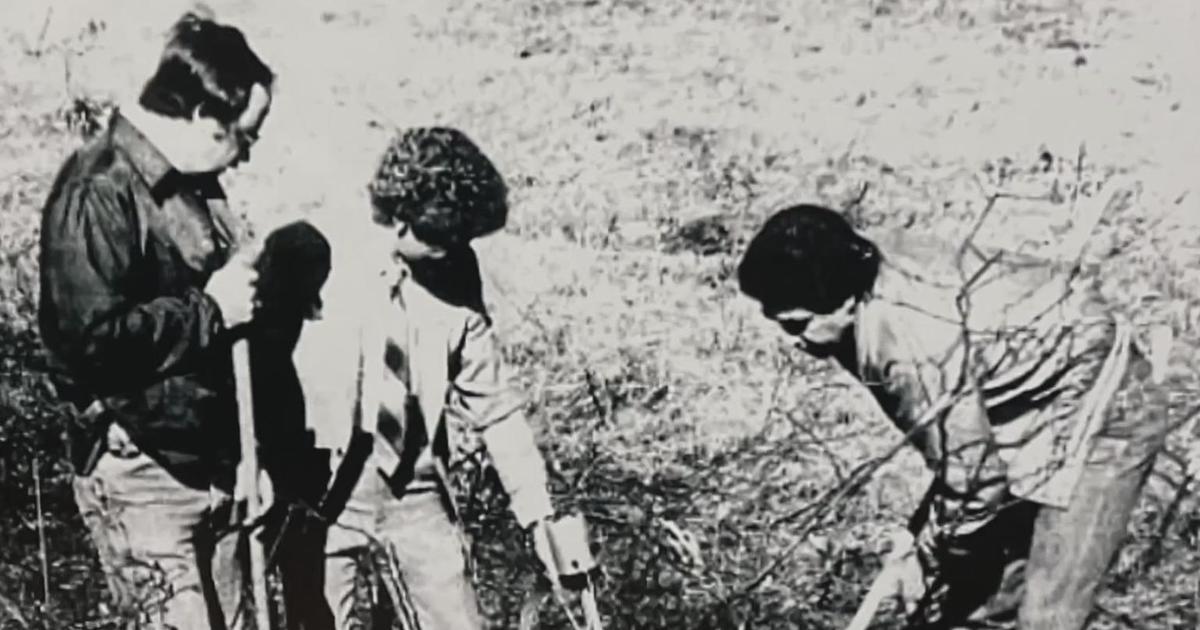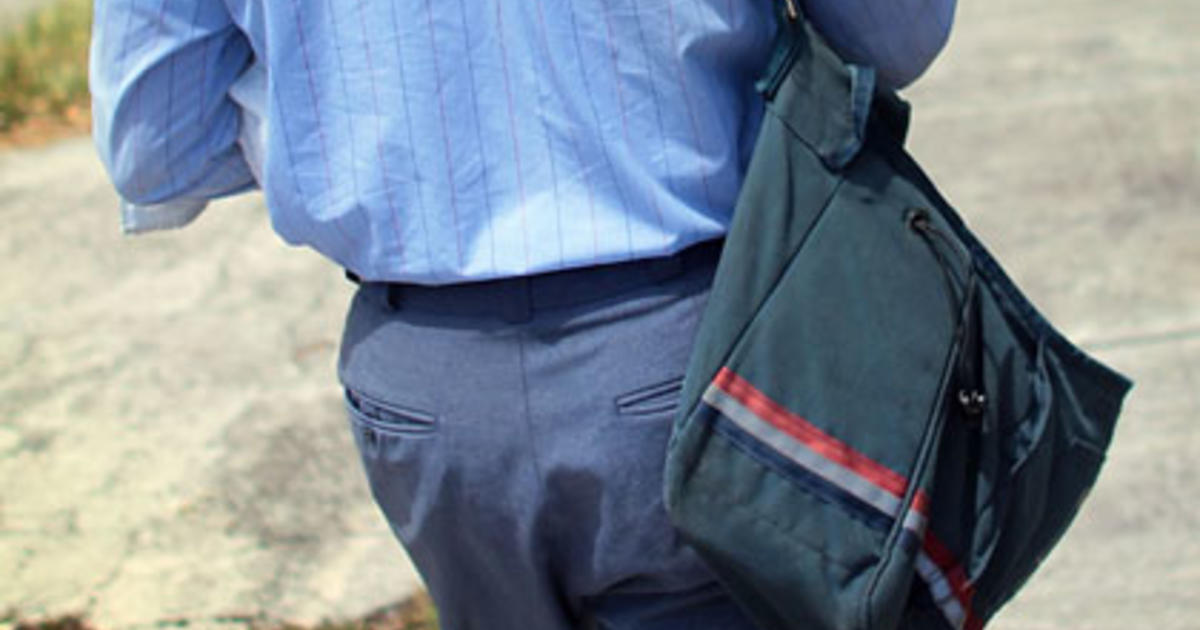Wipes, Masks And Gloves Among PPE Equipment Clogging Sewers, Storm Drains Across The U.S.
PHILADELPHIA (CBSDFW.COM/AP) — Officials in cities and rural communities across the country are issuing pleas to be careful what you flush -- as wastewater plant operators report a surge of clogged pipes and damaged equipment caused by face masks, gloves and wipes.
The problem has sharpened the longstanding clash over whether wipes are suitable for flushing.
While drain clogs aren't new, most of the more than 15 cities contacted by The Associated Press said they've become a more costly and time consuming headache during the pandemic. Home-bound Americans are seeking alternatives to bathroom tissue because of occasional shortages, while stepping up efforts to sanitize their dwellings and themselves.
In March officials in Rockwall, Texas say they had to remove a massive clog from a lift station that pumps wastewater to a treatment plant. The blockage was made up of about 80% flushable wipes combined with twigs, sticks, a plastic soda bottle, feminine hygiene products, and even a pair of underwear.
Sanitary sewer overflows jumped 33% between February and March in Houston because of clogs from rags, tissues, paper towels and wipes, said public works department spokeswoman Erin Jones.
In Murfreesboro, Tennessee, crews are cleaning sewage pumping stations a couple of times a week that previously needed it once a month, said John Strickland, manager of the treatment facility.
At Beale Air Force Base in Northern California, a squadron that usually deals with airfield maintenance and weaponry disposal has been yanking wipes from the base's plumbing.
"Our airmen are working 16-plus hours to unclog the pipe systems and that takes them out of the mission and puts a strain on the rest of the team," Master Sgt. Destrey Robbins said in an article on the Beale website.
By flushing the wrong things, people are taxing infrastructure that's already deteriorating, said Darren Olson, vice chairman of the American Society of Civil Engineers' Committee for America's Infrastructure. "Your latex glove may not be the thing that causes a clog, but you are adding to the burden."
Hundreds of areas have combined sewage and stormwater systems so sanitation officials say that means discarded masks and gloves that litter sidewalks and parking lots can also reach and help gum up treatment plants.
Olson said masks and gloves thrown in the street can travel through storm drains in separate systems to lakes and other waterways.
George Leonard, Ocean Conservancy's chief scientist, said he's concerned discarded personal protective equipment could wash out to sea and eventually add to "the plastics burden that the ocean is already suffering from."
Costs of clearing, cleaning and restarting equipment are mounting for utilities.
To reduce the likelihood of clogs, WSSC Water — a wastewater utility that serves nearly 1.8 million customers in Prince George's and Montgomery counties in Maryland — installed about 27 debris grinding pumps over the last decade at a cost of $1.5 million.
"At one wastewater pumping station alone, one that does not have grinder pumps, we have seen an increase of 37,000 pounds of wipes during January–March 2020 compared with the same time period in 2019," said utility spokeswoman Lyn Riggins.
Michigan's Macomb County spent $50,000 in 2018 removing a "fatberg" of debris, oils and grease that was 100 feet long and 11 feet wide, said Candice Miller, public works commissioner. The suburban Detroit community also spent millions to install screens that snag thousands of pounds of wipes weekly.
Municipal officials say the solution's simple: Put nothing in toilets but human waste and toilet paper.
"Don't be fooled by wipes packaging claims that these products are flushable," DC Water said in a March advisory. "They are not."
The Association of the Nonwoven Fabrics Industry, which represents hundreds of companies including major wipes producers, agrees most wet wipes are unsuitable for toilet disposal and says they're labeled as such.
But one type is designed to perform the same functions as toilet paper and merits the "flushable" label, said Dave Rousse, president of the industry group.
These cellulose wipes begin breaking down immediately and dissolve within hours, Rouse said.
"These wipes are incapable of causing the kinds of problems that wastewater operators are accusing them of," he said.
Critics contend "flushable" wipes don't biodegrade as manufacturers claim.
In March, Washington became the first state to adopt requirements for the size, placement and visibility of "Do Not Flush" warnings on wipes that manufacturers and local officials agree should not go down toilets. Similar legislation is under consideration in California.
Meanwhile, many cities are using public education campaigns to make their case against flushing pandemic debris.
The message may be getting through, says El Paso, Texas water utility spokesman Carlos Briano. Before the media blitz, emergency maintenance teams were dispatched about seven times a day to clear pipes. Now, it's once a day.
"It's slowed, but it's still not pre-pandemic," Briano said.
(© Copyright 2020 CBS Broadcasting Inc. All Rights Reserved. The Associated Press contributed to this report.)



